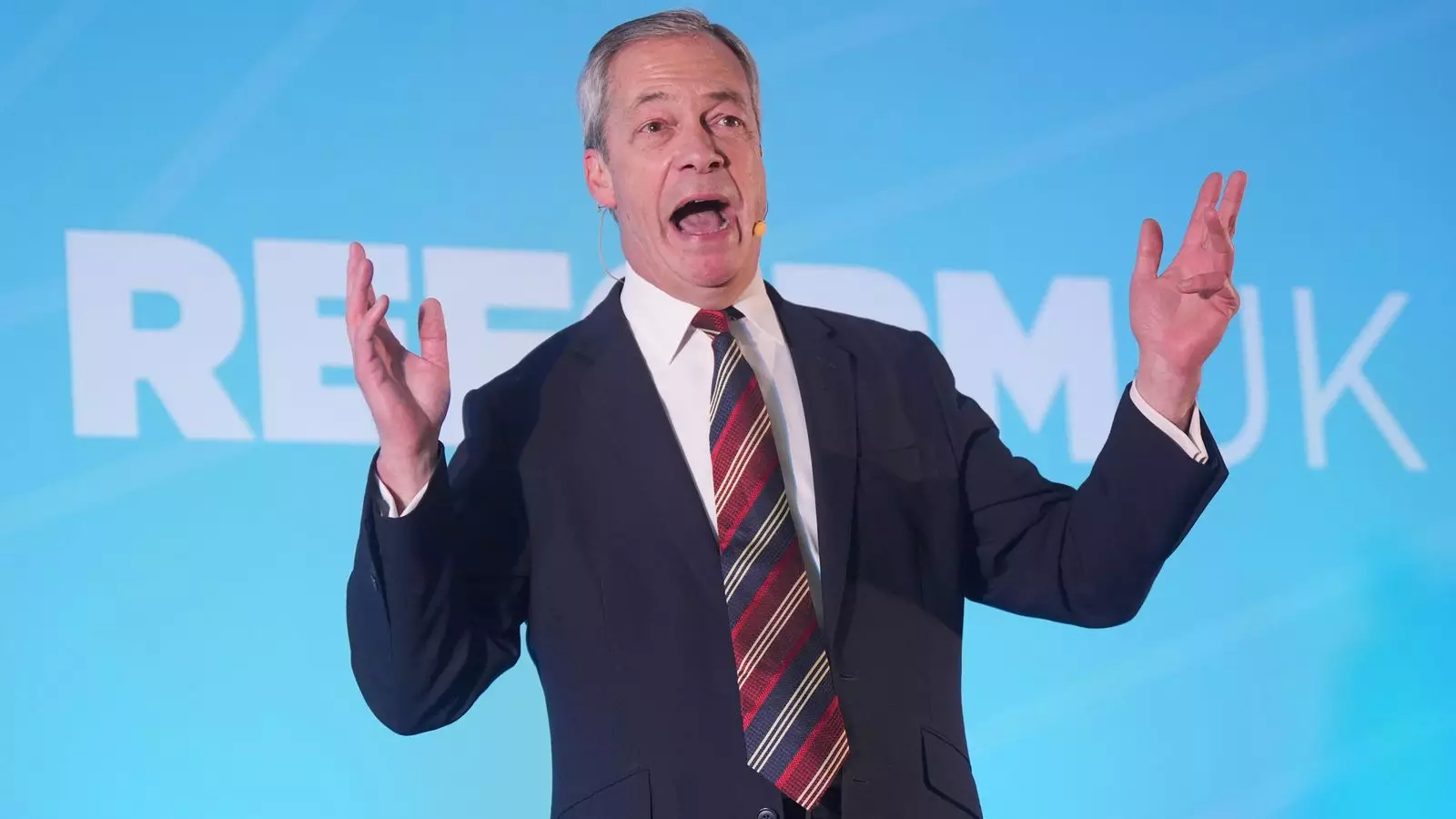Nigel Farage, a prominent figure in British politics and leader of the Reform Party, recently faced public scrutiny following comments made by tech billionaire Elon Musk. In an interview with Sky News, Farage asserted his resilience against criticism, declaring he will not be intimidated or swayed by external opinions, even from influential figures like Musk. These remarks highlight not only Farage’s steadfastness in his political convictions but also his ongoing struggle for authority within his party amidst vocal criticism.
On January 5, Elon Musk bluntly stated that Farage “doesn’t have what it takes” to lead Reform UK, a comment that prompted a reaction from the seasoned politician. Referring to Musk as a friend, Farage acknowledged the tension in their communication, particularly regarding Musk’s endorsement of controversial figures like Tommy Robinson. This incident underscores the complexities of personal relationships within the political landscape, especially when opinions diverge on sensitive issues. Farage’s insistence that he cannot be coerced into conforming to anyone’s views marks a critical moment in his political narrative, one that interprets leadership as a steadfast commitment to personal beliefs amidst adversity.
One of the central issues between Farage and Musk lies in their differing perspectives on Tommy Robinson, a far-right figure currently imprisoned for contempt of court. Musk’s vocal support for Robinson contrasts sharply with Farage’s stance—he firmly opposes Robinson and his supporters being associated with the Reform Party. Farage’s outright rejection of Robinson signifies not only a commitment to safeguarding his party’s image but also a broader ideological struggle against the far-right’s infiltration of mainstream politics. This encapsulates a significant debate within the party’s membership regarding the ideological boundaries that should define its membership and leadership.
Farage’s assertion that Robinson’s involvement would be detrimental to Reform UK illustrates the broader struggle for political identity within the party. By emphasizing a stark division between his party and far-right extremism, Farage is working to establish a clear political identity that could resonate with a broader electorate. This reflects a strategic maneuver to distance himself from the negative connotations often associated with populist movements that embrace figures like Robinson. The challenge ahead for Farage lies in solidifying his party’s message without alienating constituents who may be sympathetic to more radical viewpoints.
In addition to addressing the discord with Musk, Farage criticized the Labour government’s devolution plans, asserting they threaten democratic processes. His argument highlights a contentious area of local governance where political motivations may overshadow genuine democratic engagement. Calling the government’s move to potentially postpone local elections a “denial of democracy” reveals Farage’s inclination to frame his party as a champion of the people’s voice while presenting himself as an advocate for transparency and electoral integrity. This position allows him to rally support among constituents who may feel disenfranchised by traditional party politics.
An interesting aspect of Farage’s discussion was the perceived reluctance among some of his party members to publicly endorse Reform UK. Farage attributes this hesitance to “institutional bias” against non-leftist political views, referencing a climate where those on the right may feel scrutinized or marginalized. This self-perception of victimhood among party members complicates his efforts to build a robust support base that is unafraid to publicly proclaim its alignment with Reform UK. Farage’s analysis draws attention to the broader challenges faced by right-wing movements seeking legitimacy in a predominantly left-leaning political environment.
Nigel Farage’s recent exchange with Elon Musk and his outspoken criticism of government initiatives reflect a critical juncture for Reform UK as it navigates the turbulent waters of contemporary British politics. As Farage asserts his independence against external pressures, he must also craft a cohesive narrative that unites his party while delineating it from extreme elements. The road ahead will require a delicate balance of maintaining ideological purity while expanding the party’s appeal to a wider audience—a task that may well define the future of Reform UK in an increasingly polarized political landscape.


Leave a Reply